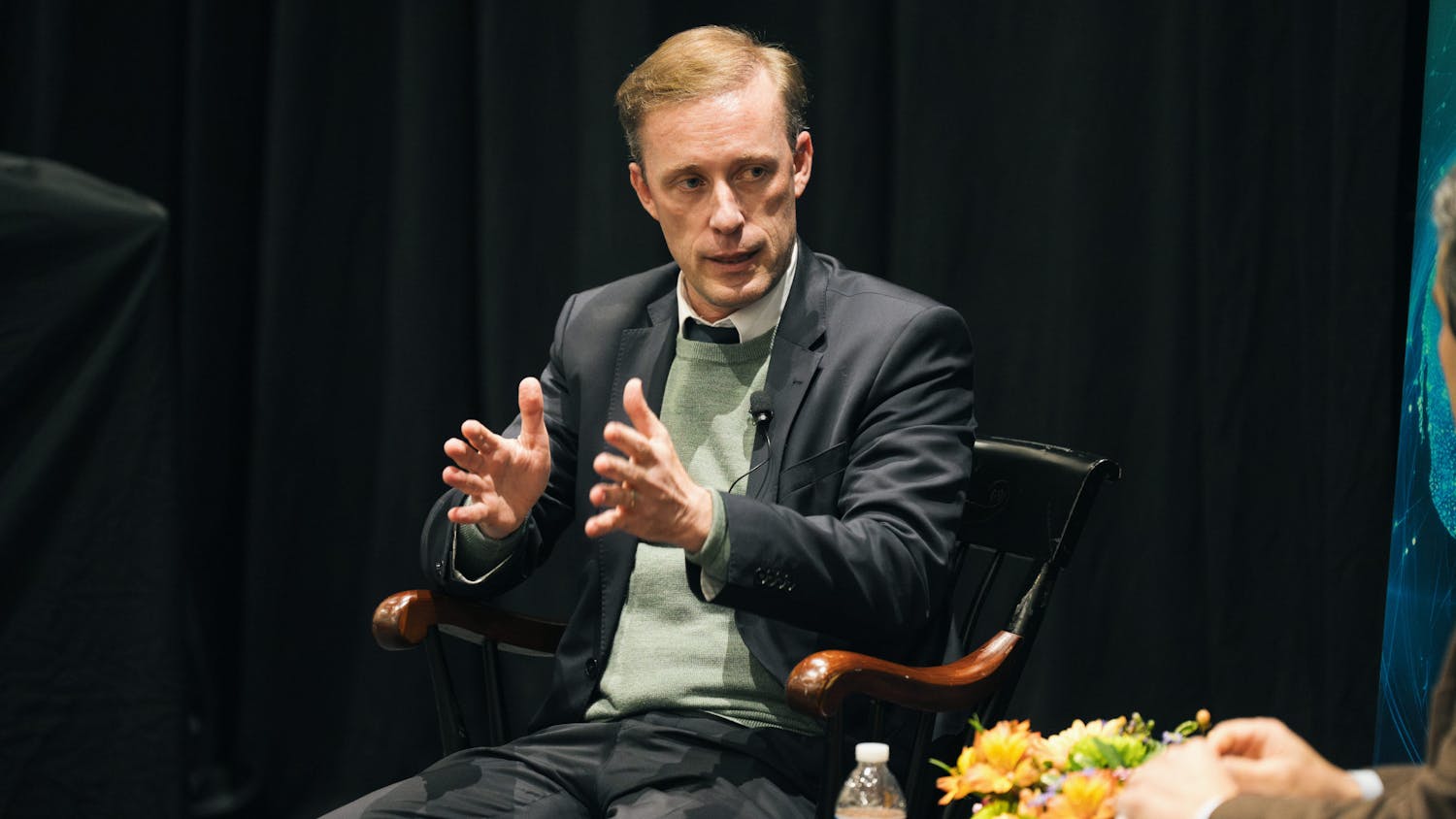Prexy Nesbitt, a former senior consultant to the government of Mozambique, met with a group of approximately 20 students at the Tucker Foundation on Monday to discuss the AIDS pandemic and the extraordinary debt sweeping Southern Africa.
Nesbitt, also a former representative of the American Center for International Labor Solidarity in Southern Africa, decried America's lack of attention to the problems plaguing Africa. He attributed the apathy it to discriminatory racial treatment.
"If this were a blond-haired, blue-eyed nation, I suspect we'd be more involved," he said.
Nesbit also claimed that thematic organizations that address the worldwide HIV/AIDS epidemic and the global cycles of third and fourth world indebtedness often neglect Africa. He encouraged Dartmouth students to take focused regional action if they want to see results in Africa.
Nesbitt was an activist in the divestment movement in South Africa and visited Dartmouth twice between 1977 and 1986, when he met with the campus anti-apartheid committees.
"Here at Dartmouth, you all responded," Nesbitt said concerning the student movements working against the segregated apartheid government.
He challenged current students to respond similarly to the HIV/AIDS pandemic and to what Nesbitt termed the "odious debts" beleaguering African nations. Six thousand Africans die of AIDS each day and by 2010, 40 million African children will be orphans because of the disease, Nesbitt said.
Nesbitt is currently involved in a material aid campaign geared toward orphans in a designated area of Mozambique.
The debts preventing Southern African nations from taking the necessary medical and educational steps to combat the pandemic are largely the products of governments that are no longer in place and of previous American political and economic actions, according to Nesbitt.
"We did a lot of dealing with evil men in creating the legacy that Africa still contends with today," Nesbitt said in direct reference to the Angolan dictator Jonas Savimbi.
Nesbitt said current South African President Thabo Mbeki's government is "far from the ideal government envisioned," claiming that its actions are motivated by fear and conservatism. He lauded former South African president Nelson Mandela for playing an unequivocal role in getting Mbeki to take liberal action and pursue reparations for apartheid induced suffering.
"It has only been Nelson Mandela and the previous government who have pushed the Mbeki government to pursue reparations," Nesbitt said.
While Nesbitt sanctioned further responsible investment in Africa to bolster its economic and domestic capabilities, he said he is a proponent of the flat elimination of African debts.
"What is needed is the total canceling of these debts held by organizations like the International Monetary Fund and the World Bank," Nesbitt said. He also said that the United Nations and other multilateral agencies have developed plans for debt-relief that would make money available for medical and educational needs.
Nesbitt questioned the presence of student organizations on campus devoted solely to the African HIV/AIDS pandemic and to African debt relief. For these crises that have no apparent end in sight, Nesbitt challenged students to push for real engagement and solidarity with the causes.
The discussion was sponsored by the African and African American Studies Program, the Russo Fund in History, the Tucker Foundation's Social Justice Lectureship, and the Afro-American Society. Nesbitt also addressed U.S. policy toward Africa since Sept. 11 in an event held at Cutter Shabazz at 8 p.m.
The social justice dialogue, held Monday in the Tucker Foundation living room, was titled "From Divestment to Cooperation: A Social Justice Dialogue on Dartmouth and Southern Africa."



